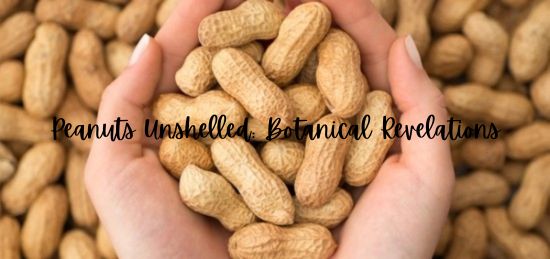Despite their name, peanuts aren’t true nuts. Delving into the fascinating world of botanical classification, we uncover the reasons behind the surprising revelation that peanuts aren’t what they seem. Let’s unravel the mystery and explore the unique nature of these legumes.
1. Botanical Distinctions: Legumes vs. Nuts
While peanuts are commonly referred to as nuts, they belong to the legume family. Unlike true nuts that grow on trees, peanuts grow underground, making them seeds enclosed in pods. True nuts, such as acorns and chestnuts, have a hard outer shell that protects the seed inside. Peanuts, on the other hand, develop within the soil from a flower that bends down to bury the ovary.
2. Underground Growth: Peanuts’ Unconventional Journey
Peanuts embark on an unusual journey to reach maturity. After flowering above ground, the peanut’s ovary elongates and eventually burrows into the soil. The pod then matures underground, where the seeds develop into the familiar peanuts we know. This unique growth process sets peanuts apart from true nuts and showcases their distinctive botanical characteristics.
3. Culinary Confusion: Nuts, Legumes, and the Kitchen
In the culinary world, peanuts often find themselves in the company of true nuts like almonds and walnuts. This mingling of terms can lead to confusion. While peanuts share a nutty flavor profile and are commonly used in similar culinary applications, their biological classification sets them apart.
4. Nutritional Profiles: Legumes’ Healthy Goodness
From a nutritional standpoint, peanuts bring their own set of benefits to the table. As legumes, they offer a rich source of protein, healthy fats, and essential nutrients. Despite the botanical distinction, peanuts remain a wholesome and versatile ingredient in various cuisines worldwide.
5. Allergies and Cross-Contamination Considerations
Understanding the botanical truth about peanuts is crucial, especially for individuals with allergies. Peanut allergies are common, and knowing that peanuts are legumes rather than true nuts helps in managing dietary choices and avoiding potential allergens. Cross-contamination precautions become more apparent when we recognize the differences in how peanuts grow and are harvested.
In conclusion, the revelation that peanuts aren’t technically nuts adds a layer of botanical intrigue to our culinary understanding. While they may share the nut aisle, the unique journey of peanuts from flower to underground pod sets them apart in the fascinating world of plant biology. Embracing this distinction enriches our appreciation for the diversity and complexity of the plant kingdom.
Picture Courtesy: Google/images are subject to copyright









